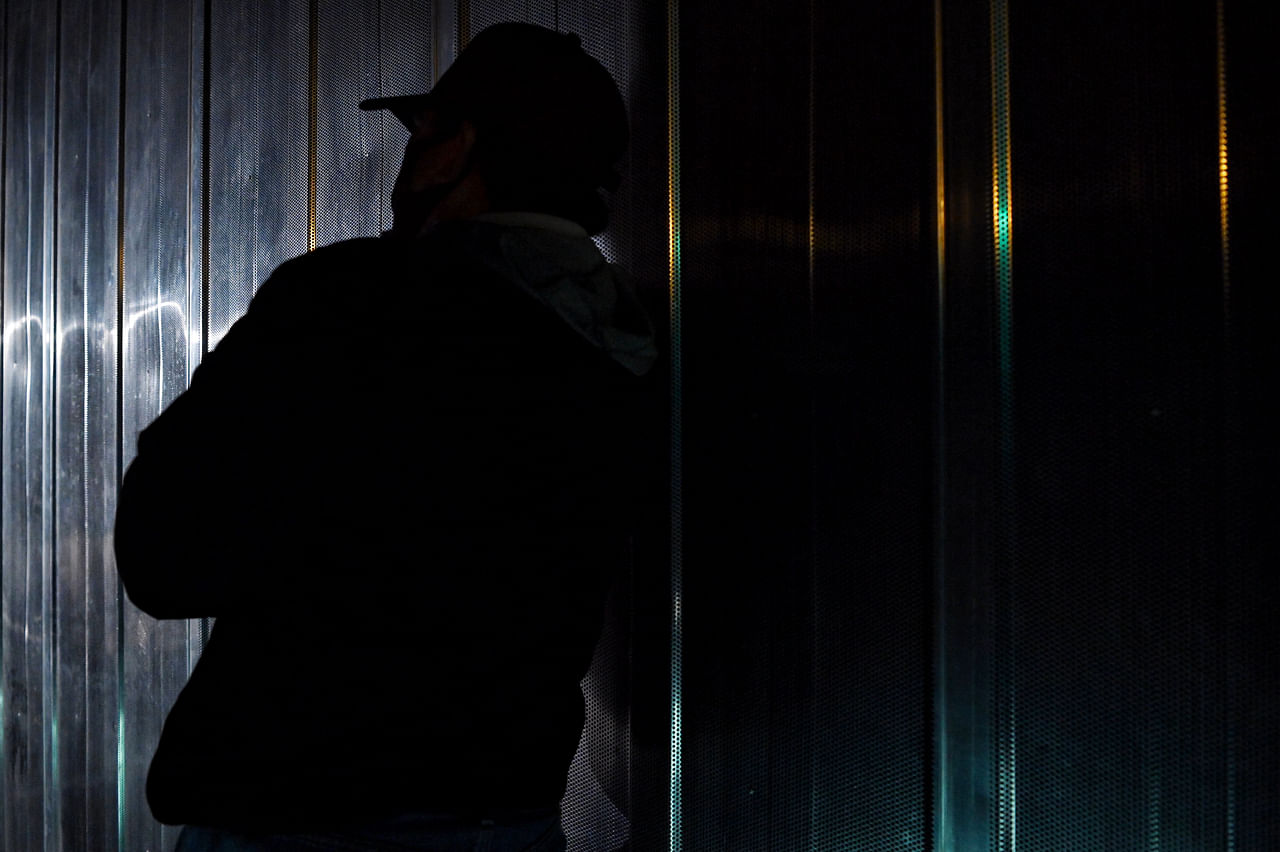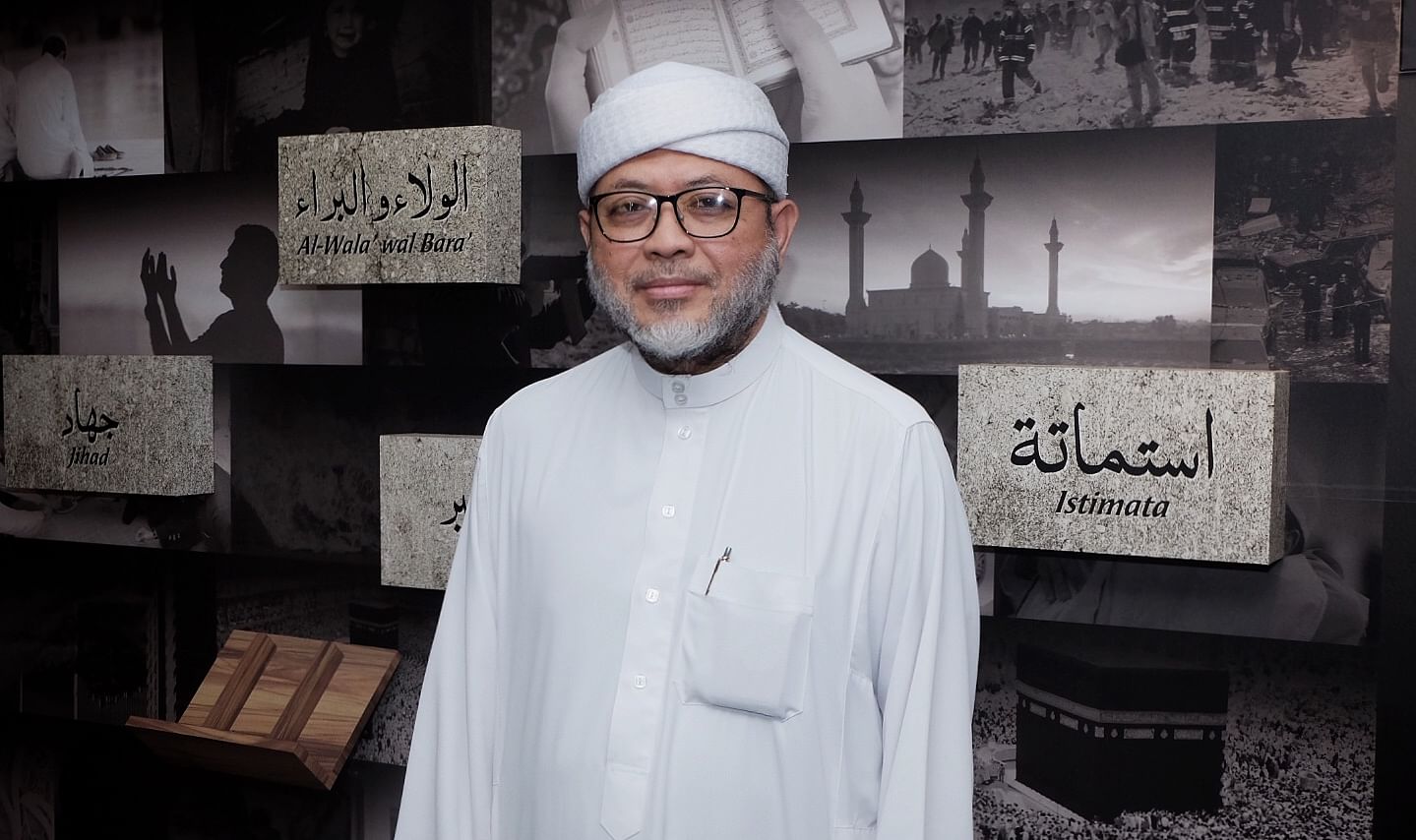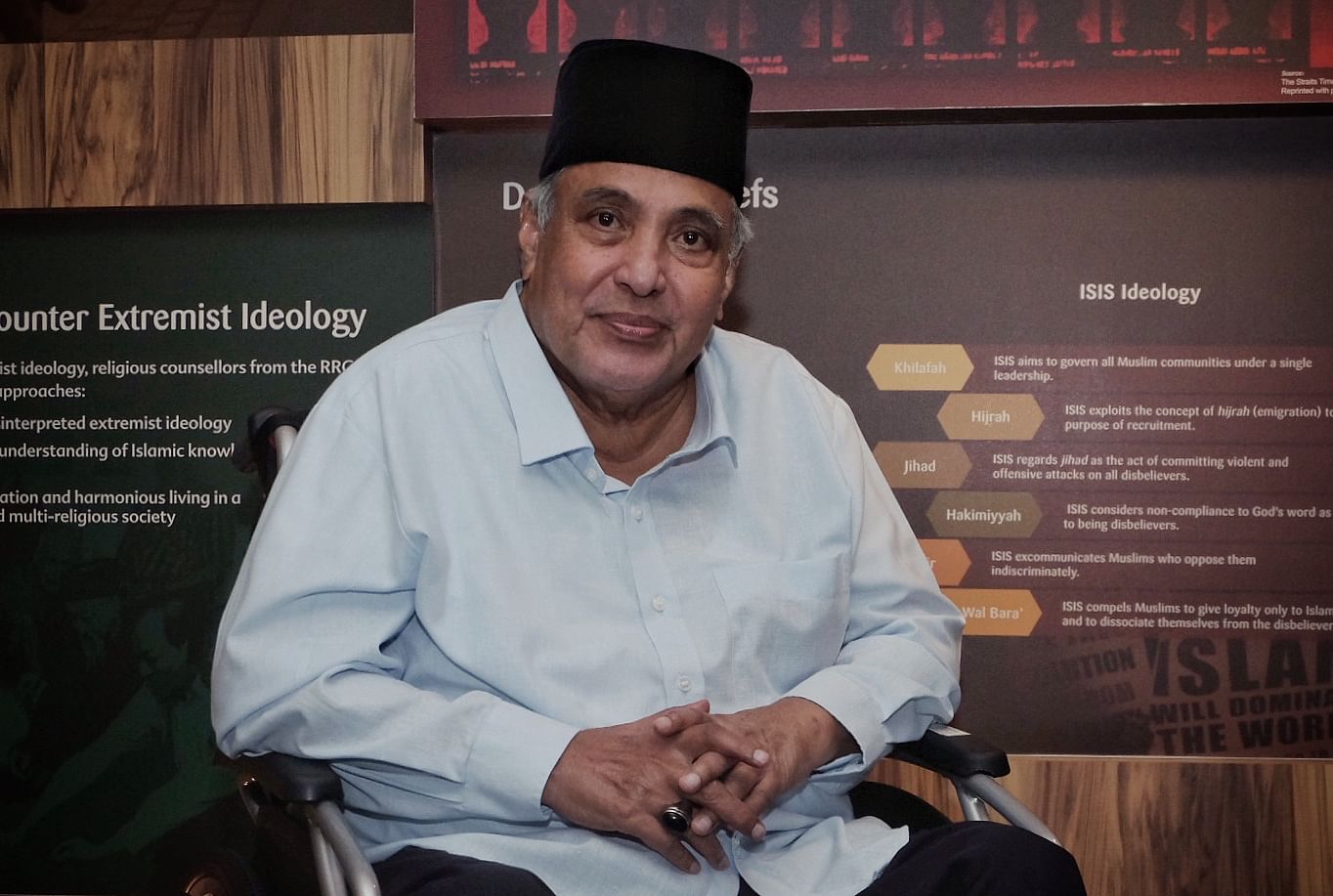JI detainees 20 years on: Rehabilitated, reintegrated?
Sign up now: Get ST's newsletters delivered to your inbox
The Straits Times interviews former Jemaah Islamiah members who were arrested in 2001 for their involvement in a plot to commit terrorist attacks in Singapore.
SINGAPORE - When the first Jemaah Islamiah members were arrested and questioned 20 years ago, the investigators realised that detention alone would not suffice to tackle the radical religious ideology JI members had been indoctrinated in.
Two senior Islamic scholars - Ustaz Mohd Hasbi Hassan and Ustaz Ali Mohamed - were invited to meet the detainees.
Ustaz Ali still remembers the shock he felt at finding out how misguided their grasp of Islam was.
They felt the foreign teachers they had were better, "more honourable and braver than the religious teachers in Singapore", because they were willing to fight others for their faith, he recalled.
Those early meetings led the two clerics to propose the formation of what would be the Religious Rehabilitation Group (RRG), a voluntary group of Islamic teachers who would go on to also counsel radicalised persons and their families.
One former JI member who was helped on the road to rehabilitation by the RRG was Adam (not his real name), who had imbibed JI ideology through home-based lessons and had regular sessions with the RRG teachers while in detention.
"All the time I was doing things for JI, it wasn't for goodness from God but instead his unhappiness," said Adam, reflecting on his years with the JI.

One former JI member who was helped on the road to rehabilitation by the Religious Rehabilitation Group was Adam.
ST PHOTO: KUA CHEE SIONG
The collaborative, consultative approach involving religious leaders, officers from the Internal Security Department (ISD) and community partners that was adopted as a result of these initial meetings would play a critical role in the rehabilitation - and ongoing reintegration - of former JI members into mainstream society.
The approach has borne fruit.
Out of the 56 JI members who were issued with Orders of Detention since 2002, only four remain in detention: JI leader Ibrahim Maidin, Mohammad Aslam Yar Ali Khan, JI's Singapore operations chief Mas Selamat Kastari, and his son Masyhadi.
No JI member released from detention has reoffended.
The RRG was formalised in 2003 and publicised two years later.
Its sessions with detainees unearthed a wealth of information on the JI's misrepresentation of Islam, as well as how they recruited and indoctrinated members.
The religious leaders found out how the members took a bai'ah, or oath of allegiance, to senior JI leaders, and how they planned to carry out a jihad, or armed struggle, in the name of Islam.
The JI had misinterpreted these concepts in a bid to forward their own violent agenda, and the religious leaders found themselves having to confront the challenge of correcting misguided understandings.
Ustaz Hasbi recalled how the group and "teachers" of its warped ideology had translated verses from the Quran according to their own understanding. "They are not educated in the religious field, and they speak according to their own beliefs," he said.
He and his fellow teachers felt it was their obligation to bring these detainees to the right path, and importantly, make sure such dangerous and erroneous interpretations of Islam do not spread in the community. They volunteered to work closely with these men and help in their rehabilitation.
"We feel that especially as asatizah, that it is our duty," said Ustaz Ali, using the Arabic term for religious teachers.
It was the "greatest challenge" to correct the views of the former detainees, involving repeated meetings to discuss, understand and clarify their misinterpretations.
Some even labelled the teachers "government ustaz" or "ustaz munafik (hypocrite)", because they felt the clerics were working for the authorities.
"They were very abusive in the beginning, they would curse and swear at the religious teachers," senior ISD operations officer Faisal (not his real name) added.

JI 20-years anniversary special: Feature on ISD's community partners Ustaz Hasbi (RRG)
PHOTO: BH
The pushback and labels did not just come from the detainees, and Ustaz Ali recalled that even members of the community passed judgment on the asatizah who wanted to help rehabilitate the JI members.
"They called us hypocrites, and they labelled us with all sorts of accusations. But that is not an obstacle," he said. "Not only are we helping the Government, we would also like to help our religion because its terms and concepts are misused," he said.
As for the four hardened JI members, they meet RRG counsellors regularly, despite their continued rejection of the clerics. One regularly threatens to harm ISD officers and the Government, saying Singapore would burn in hellfire. Another still believes in armed jihad, saying he would not hesitate to carry out a suicide attack if called on by JI leaders to do so.
Ustaz Ali said the work to engage these detainees has to go on, because there is hope that one day, they might come to their senses.
Religious counselling, together with the work of psychologists plus social support through weekly family visits, are key to the ISD's long-term approach to rehabilitating terror detainees.
Just as key to the process was the level of trust established with detainees, which owed a large part to what former JI members describes as ISD officers' fair, humane and respectful treatment of them.

JI 20-years anniversary special: Feature on ISD's community partners Ustaz Ali (RRG)
PHOTO: BH
Several detainees told ST they had been warned by JI leaders that detention meant systematic mental and physical torture, including removal of nails and curtailing of all freedoms. This was not the case.
"We had been brainwashed into thinking that after you get arrested, when you are released you will be insane and not a normal person anymore," said Johan (not his real name), a former member of JI's consultative council who was held by the ISD from 2006 to 2012.
"There was no truth to any of it."
He recounted being able to read in the library, exercise twice a day, see his wife and children every week, and had doctors check on him daily. On Hari Raya, special visits were arranged for immediate family members to bond and spend time together over snacks.
For former JI members like Helmi (not his real name), his time in detention from 2005 to 2013 helped him realise what mattered most: "My involvement in JI brought suffering to my family. I regretted my actions and wanted to turn over a new leaf so I could be a good father to my children and a dedicated husband to my wife."
Another former detainee, Salleh (not his real name), said family visits and letters gave him the strength to see through his detention from 2002 to 2004. "I felt reassured when hearing from my family that they had not been left to fend for themselves... ISD and Muslim groups helped out with expenses for household needs and my children's education," he said.
Detainees' families are offered counselling by the RRG in case of exposure to radical ideology; and financial and social support from a network of community groups - the Inter-Agency Aftercare Group (ACG).
The ACG was formed in early 2002, soon after the first arrests, to aid the wives and children of JI detainees. It comprises members of the non-profit AMP, self-help group Mendaki, community group Taman Bacaan, and some mosques.
As most detainees were sole breadwinners, the ACG's help proved crucial for spouses like Sarah (not her real name). "We had a large family and I had never held a job before," she said. An ISD aftercare officer was assigned to her family after her husband's arrest.
The ACG provided support in cash, vouchers, bursaries and tuition for the children. The group also provided training that helped secure her first job as a clerical worker - which she remains in today.
The ISD said it is invested in helping the children of detainees to reduce their vulnerability to negative influences and prevent the emergence of a potential "second generation" of JI members. "Thus far, most of the children of the JI members are either gainfully employed or engaged in studies, and remain resilient against radical influence."
One example is Abdullah (not his real name), the son of a former JI member, who said he appreciated the assistance his family had from AMP and Mendaki, which gave him a loan to finance a diploma after national service.
Madam Zaleha Ahmad, centre director of AMP's Marriage Hub, recalled how she and her colleagues initially faced rejection from some families.
Slowly, counsellors and aftercare officers gained their trust, sharing personal mobile numbers so they could be reached at any time.
Mendaki chief executive officer Zuraidah Abdullah said the long-term objective is to have the families self-sufficient and self-reliant - and not burdened by the consequences of their father's or husband's mistakes.
"The community, as a whole, cannot see the family and (say): 'Oh this is a family of so-and-so' and therefore don't go near them or something," she added. "We should embrace them. They should not feel isolated."
The effort has helped the majority of former detainees successfully reintegrate into society, the ISD said.
Officers maintain contact and offer guidance and support to ensure they don't lapse into old habits. Former detainees - and their families - are free to approach the ISD for help as well, the department said.
Some employers have stepped up too.
Mr John Tan, who has hired several former detainees, said: "We (should) always give them an opportunity to rebuild their life, put it back on track," he said.
Over the years, he has seen former detainees start from scratch and rise through the ranks to become supervisors; aided by his own willingness to send them on upgrading courses. He has also matchmade a former detainee with a co-worker. The duo eventually got married - and, with the ISD's help, managed to secure a rental flat.
Senior officer Rajah (not his real name) said the approach of long-term engagement through an ecosystem of multiple stakeholders has helped stop most detainees "from sliding back onto the radical pathway".
The perennial challenge for detainees, he added, is how society, community and family will ultimately perceive and accept them.
To signal to detainees that the community has not given up on them, more than 10 mosques here typically volunteer to send porridge to them during Ramadan every year. "Some of them, when they see the porridge, they actually cry," said Rajah. "It's very symbolic and meaningful especially during the fasting month. These kinds of things help the detainees to move on."
Adam said he was mistakenly drawn to JI by a desire to be not just a better Muslim, but also a better family man.
In the end, it was his eight-year detention spell and rehabilitation that gave him genuine motivation and took him closer to fulfilling his roles as a good Muslim, husband and father.
"Now, it's time for me to pay it all back," he said.
"My time is not for me anymore. Whenever my family needs me, I will be there for them, with them."


